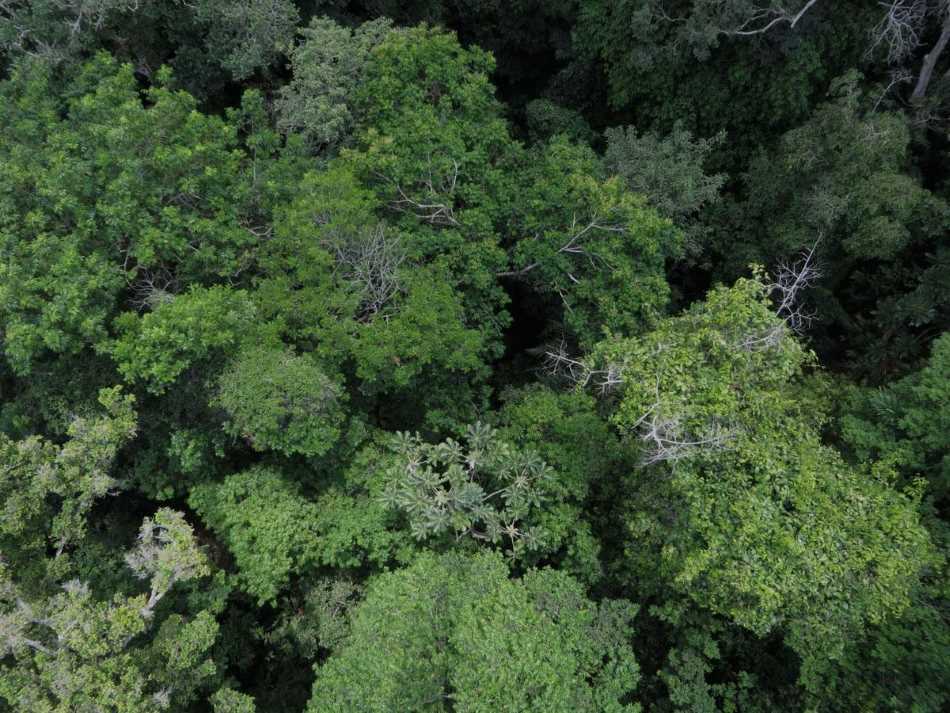Summary:
Tropical forests across the Americas are not adapting quickly enough to climate change, raising concerns about their long-term stability.
A study published in Science analyzed data from 415 permanent forest plots, spanning Mexico to southern Brazil, to assess how tree species are responding to shifting temperatures and rainfall patterns. Researchers, including Dr. Jesús Aguirre-Gutiérrez from the University of Oxford and Dr. Sami Rifai from the University of Adelaide, examined functional traits such as leaf size, wood density, and maximum height in over 250,000 trees. Their findings reveal that forest communities have shifted by less than 8% of what would be required to keep pace with climate change.
With projections indicating temperature increases of up to 4°C and rainfall reductions of 20% by 2100, tropical forests could face significant imbalances, making them more vulnerable to extreme climate events. This research highlights the urgent need for conservation strategies that account for species’ adaptive capacities and ecosystem resilience.

Tropical forests aren’t keeping pace with climate change
A major new study has revealed that tropical forests across the Americas are not adapting quickly enough to climate change, raising concerns about their long-term resilience.
Led by Dr Jesús Aguirre-Gutiérrez, from the University of Oxford’s Environmental Change Institute (ECI), and involving researchers from the University of Adelaide, the study saw more than 100 scientists and local partners analyse data from 415 permanent forest plots, spanning Mexico to southern Brazil.
By examining the traits of more than 250,000 trees, the team assessed how different species are responding to shifting temperatures and rainfall patterns.
“Due to how rapidly climate change is altering temperature and precipitation patterns, tree communities are responding too slowly to remain in equilibrium with their environment,” says Dr Sami Rifai, a lecturer from the University of Adelaide’s School of Biological Sciences.
“By 2100, temperatures in the region could rise by up to 4°C, with rainfall decreasing by as much as 20 per cent. This could push tropical forests further out of balance, making them more vulnerable to extreme climate events.”
The study was completed using field data taken from the forest plots.
“This study pulled together data covering a dozen different functional traits – such as leaf size, wood density and maximum height – from over a thousand tree species,” says Dr Rifai.
“These plant functional trait measurements were then paired with tree species composition data collected from 415 forest plots where growth, mortality, and recruitment were tracked for more than a quarter million trees to characterise how these forests have changed over the past 40 years.
“Next, this 40-year change in the plant functional traits of the forest plots was compared to how it might be expected to change if these forests’ functional traits were changing proportionately to the last 40 years of climate change.
“Rather than keeping pace with a changing climate, it was found that the functional traits from these hundreds of forest plots had shifted by less than 8 per cent of what would be required to track changes in climate.
“This is a worrying finding given the importance of tropical rainforests for sustaining species diversity and the functioning of the terrestrial biosphere.”
Tropical rainforests play a vital role in global climate regulation and biodiversity conservation, but their ability to adapt to climate change is limited. This study shows a way forward for conservationists looking to preserve this vital function.
“By looking at individual trees from different communities, we found some have suffered due to climate shifts, while others have thrived,” says Dr Aguirre-Gutiérrez.
“If we know what species of trees are doing better or worse, and what set of traits they have, then we know what they can withstand. It will help inform what conservation actions should be encouraged and where funding should be allocated.”
Journal Reference:
Jesús Aguirre-Gutiérrez et al., ‘Tropical forests in the Americas are changing too slowly to track climate change’, Science 387, 6738, eadl5414 (2025). DOI: 10.1126/science.adl541
Article Source:
Press Release/Material by Johnny von Einem | University of Adelaide
Featured image credit: Sami Rifai | University of Adelaide



